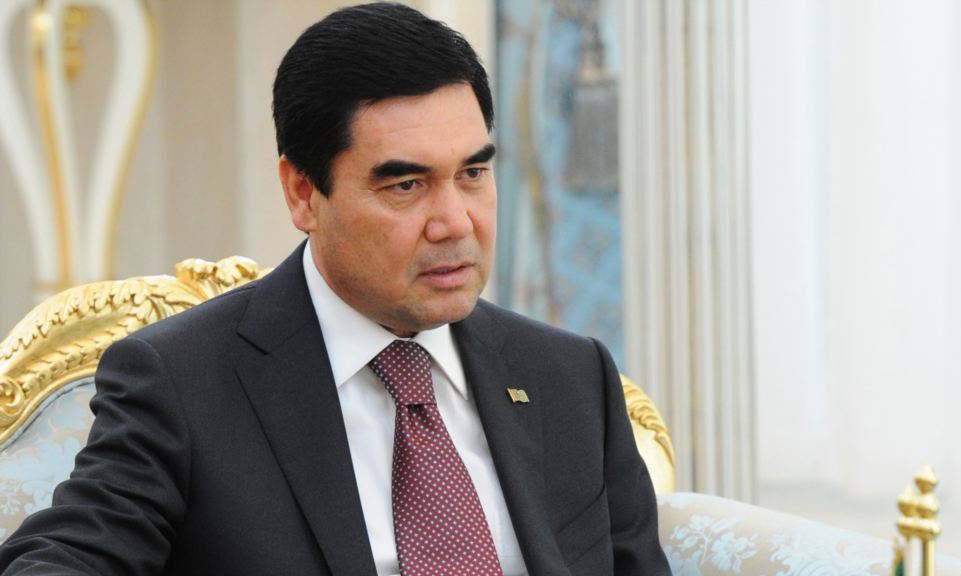Turkmen president: TAPI project important for global energy security

By Aynur Jafarova
Turkmen President Gurbanguly Berdymukhamedov has stressed the importance of the transnational Turkmenistan-Afghanistan-Pakistan-India (TAPI) gas pipeline project in the formation of the global energy security architecture.
The design capacity of the TAPI gas pipeline is 33 billion cubic meters of natural gas per year. The estimated length reaches 1,735 kilometers. It is expected that the pipeline will extend from a massive gas field in Turkmenistan, Galkhynysh, through the Afghan cities of Herat and Kandahar and reach to its final point in Fazilka settlement on the Pakistani-Indian border.
Addressing a government meeting on Friday, Berdymukhamedov spoke about the tasks set for the creation of a multivariate system of Turkmen energy resources' supply to world markets, as well as for further promotion of Turkmenistan's international initiatives in the field of forming the new global architecture of energy security. Berdymukhamedov said that "in this context, a specific role is assigned to the implementation of the transnational Turkmenistan-Afghanistan-Pakistan-India gas pipeline project."
The president said its implementation will contribute to boosting the economic potential of all member states of the TAPI project, as well as strengthening of peace, stability and security in the region.
The Turkmen president issued instructions to step up work on industrial exploitation and development of new hydrocarbon deposits, as well as on modernization of the fuel industry. Berdymukhamedov also noted the need of development of mutually beneficial cooperation with major international oil and gas companies.
TAPI is currently at an important stage of development. Talks are underway on the establishment of the project consortium, financing and security, and in particular the security of the pipeline section crossing troubled Afghanistan. Instability remains a major obstacle to transit through Afghanistan, although Kabul states that it would be able to ensure the safety along the route.
Observers say that the implementation of TAPI could contribute to the rehabilitation process in Afghanistan as it will create jobs and provide the country with guaranteed income from transit.
However, General Director of the Russian Institute of National Energy, Sergei Pravosudov, believes that currently, there are no preconditions of possible implementation of the TAPI gas pipeline project in the near future.
"The TAPI project has been the subject of discussions for nearly 15 years, and its key issue has always been the project's security in Afghanistan. A solution has not yet been found. Given the proposed withdrawal of the U.S. troops from Afghanistan in 2014, it is unknown who will ensure the safety of the pipeline," Pravosudov said.
According to him, the problematic relations between Pakistan and India are also among the problems.
"In addition, there is an alternative Iran-Pakistan-India pipeline which is limited by tensions between India and Pakistan," Pravosudov said.
The Ashgabat agreement of member states on the commencement of the actual implementation of the TAPI project signed in late 2010 is the basic document for the promotion of the TAPI project.
In fall 2012, Turkmenistan held a series of international road shows for TAPI with the participation of the Asian Development Bank (ADB). It was reported that Chevron, Exxon Mobil, BP, BG Group, RWE, and Petronas have expressed intentions to participate in the project.
According to Indian sources, Shell is interested in the project, and Bangladesh wants to join TAPI as a buyer. Also, South Korea's state-run Korea Gas Corp (KOGAS) has voiced offers on the TAPI project in Ashgabat.
Russia also shows an interest in the project, whose implementation is supported by the U.S., which opposed a similar project from Iran to Pakistan.
